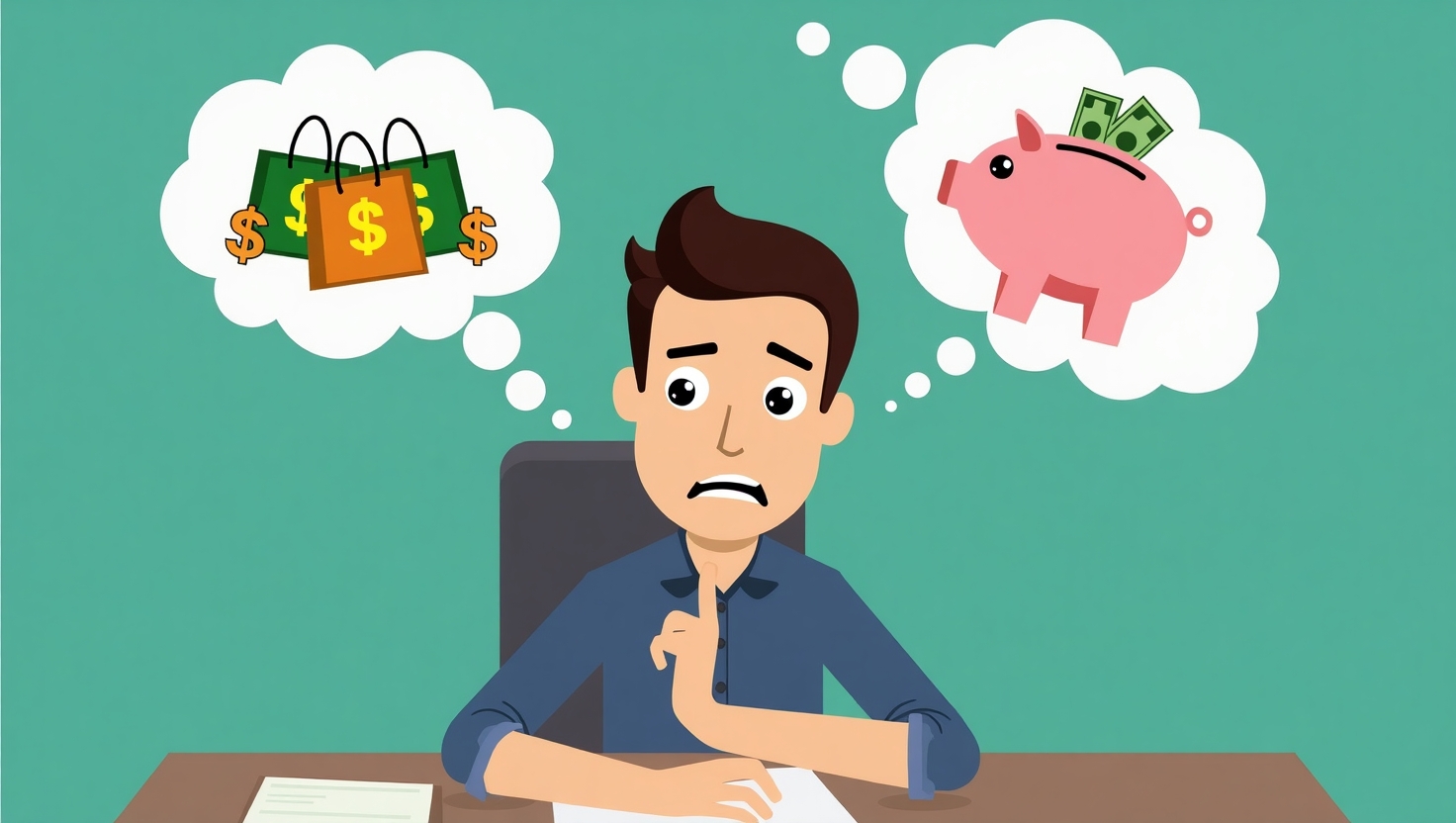How emotions affect financial decisions
There is a close relationship between emotions and money that most people don’t want to admit. While we believe that we make decisions with reason and logic, especially when it comes to something as important as our financial situation, the reality is often very different. In fact, our emotional responses often guide our financial choices, whether we are aware of it or not. From the thrill of a sale to the anxiety of a falling market, our feelings influence the way we spend, save, and invest.

Understanding how emotions influence financial decisions isn’t just a topic for behavioral economists or financial therapists. It’s essential knowledge for anyone who wants to gain better control over their money and future. By learning how emotions can lead us astray and how to manage them, you can avoid costly mistakes and develop habits that lead to long-term financial success.
Take a moment to think about your recent financial decisions. Have you ever bought something you didn’t plan on just because it made you feel good? Have you ever put off saving or investing for retirement because it seemed overwhelming or scary? These are emotional reactions, not rational ones, and they are more common than you might think.
In the world of investing, emotions can cause massive financial losses. One of the most destructive emotional reactions is fear, especially during periods of market volatility. When the market is in a sharp decline, fear can quickly turn into panic. Investors may rush to sell their assets to avoid further losses, holding on to losses rather than waiting for a recovery. This is a textbook example of loss aversion — the psychological principle that people feel the pain of losing money more intensely than the pleasure of gaining.
Conversely, when the stock market is booming and asset prices are reaching record highs, another emotion kicks in: greed. Investors start chasing hot stocks or assets based on hype rather than fundamentals. This fear of missing out, often known as FOMO, leads people to invest blindly without research or due diligence. They buy at high prices and get disappointed when the market corrects and prices fall.
Then comes overconfidence, a silent but equally dangerous mental bias. After a few successful investments, some people start to believe they have a special talent for picking winners. This leads to excessive risk-taking, lack of diversification, and sometimes catastrophic losses. Believing yourself invincible in the markets is a surefire way to be blindsided by unexpected downturns.
Another common psychological problem is anchor bias. This occurs when an investor becomes fixated on a particular price point—usually the price they originally paid for an asset—and refuses to sell at a loss even when all signs point to it being the best decision. The original purchase price becomes an emotional anchor that clouds rational thinking. Instead of adapting to new information or market conditions, decisions are made based on old references.
Confirmation bias also plays a key role. Investors often seek out information that confirms what they already believe, while ignoring information that contradicts their assumptions. This means that someone may hold onto a bad investment because they selectively focus on optimistic news while dismissing warning signals. This tunnel vision can prevent necessary action and deepen financial losses.
But the impact of emotion is not limited to the stock market. It also permeates our everyday financial behavior. One of the most common emotional traps is emotionalism. Many of us have seen it happen – you go to a store or browse an online site where you want to buy something and end up spending way too much. This immediate rush of excitement and gratification overwhelms rational thought. You justify it by arguing that you deserve a gift, or that it’s on sale, but it often becomes your emotion.
Another emotional driver is the desire for status or social validation. People feel pressure to keep up with their peers – buying fancy cars, designer clothes, or upgrading to a bigger house – not because they need these things, but because they want to project an image of success. Social media has exacerbated this behavior, making it easy to compare your lifestyle to others. The result? Overspending, mounting debt, and financial stress, all in the pursuit of external approval.
Then comes procrastination, a less obvious but deeper emotional behavior. People put off making important financial decisions like budgeting, paying off debt, or investing for retirement. Why? Because they feel overwhelmed, scared, or afraid of making a mistake. This financial inertia, rooted in fear and avoidance, can become very costly over time. Small delays can turn into large financial gaps that are difficult to fill. Some people also use spending as a form of emotional release. Stress, sadness, or anxiety can trigger shopping binges. This type of emotional spending is a coping mechanism that provides temporary relief or a feeling of happiness. But like any short-term solution, it doesn’t solve the root problem and often causes long-term financial damage after the temporary high comes guilt, debt, and even more stress.
The good news is that once you understand how emotions affect financial decisions, you can take proactive steps to regain control. The first step is self-awareness. Pay attention to how you feel when making financial decisions. Are you anxious, excited, frustrated, or upset? Acknowledging your emotional state can help you pause and avoid making knee-jerk decisions.
Taking a break before making a big financial decision can be incredibly empowering. For example, give yourself 24 hours to think about a big purchase. This delay creates space between the emotional trigger and the action, allowing your rational mind to take action.
Having a clear financial plan also acts as a buffer against emotional decision-making. When your goals, budget, and investment strategies are written down, even when emotions try to derail you, your plan becomes your north star, keeping you steady during financial storms.
Automating your savings is another smart strategy. By setting up automatic transfers from your checking to your savings or investment accounts, you eliminate emotional decision-making entirely. It becomes a habit rather than a choice and is less likely to be influenced by how you feel in the moment.
Education is also important. The more you understand about personal finance and investing, the less scary it becomes. Knowledge provides a foundation that helps you separate fact from fear. Read books, follow reputable financial blogs, or take a course. Over time, you will build confidence and clarity.
Sometimes, emotions are so deeply rooted that it helps to get an outside perspective. A financial advisor or coach can provide objective advice and help you see things more clearly. They can identify when your decisions are being driven by fear, greed, or bias, and help guide you back to rational choices.
Practicing mindfulness is another effective tool. Mindfulness involves observing your thoughts and feelings without judgment. When applied to finances, it can help you notice emotional patterns without automatically acting on them. You may still feel anxious about a volatile market, but mindfulness helps you recognize fear without panicking and selling your investments.
Finally, it’s essential to educate yourself about common cognitive biases. From confirmation bias to anchoring, these mental shortcuts are deeply embedded in our brains. Knowing how they work can help you counteract them. For example, if you’re aware of your tendency to seek out confirming evidence, you can make a conscious effort to consider opposing viewpoints before making decisions.
Our emotions are what make us human, but when left unchecked, they can wreak havoc on our financial lives. The key is not to eliminate emotions but to manage them. By understanding emotional forces and taking protective measures, you can regain control and make decisions that are aligned with your long-term financial goals. Whether you’re investing, saving, or simply trying to resist the urge, being emotionally aware can be the difference between financial stability and financial regret. Your financial future depends not just on how much you earn, but on how well you manage your emotional relationship with money. Don’t let your emotions bankrupt you. Instead, turn emotional awareness into a superpower that supports smarter, more resilient financial decisions for the rest of your life.
